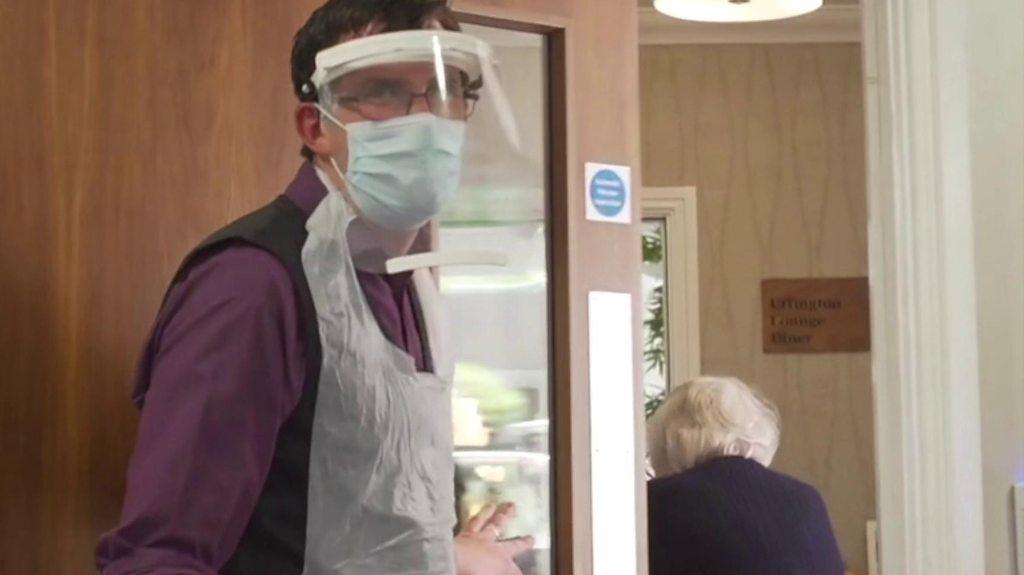Coronavirus: Care home staff and residents to get regular tests
- Published
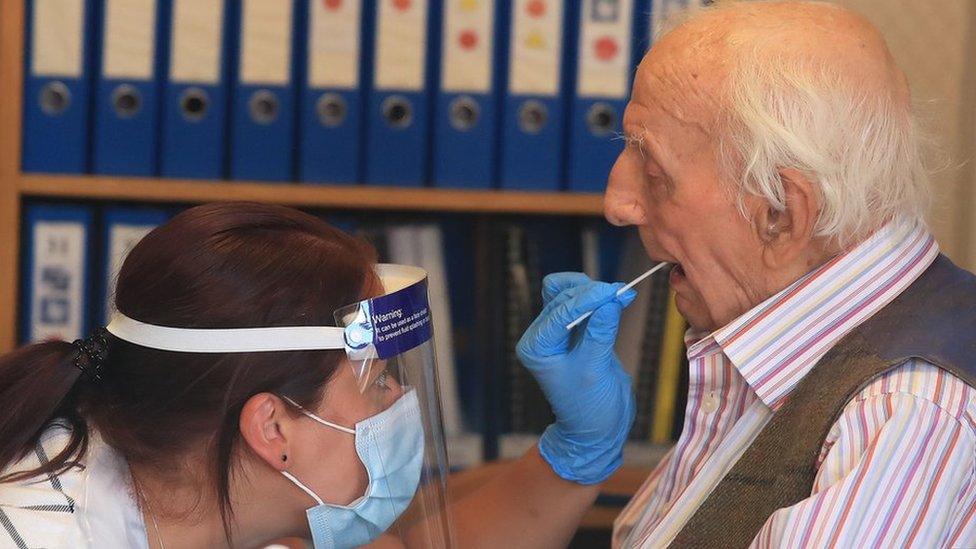
Elderly care home residents will be tested every 28 days
Staff and residents in care homes in England will receive regular coronavirus tests from next week.
Staff will be tested for coronavirus weekly with tests every 28 for days residents over 65.
The testing policy, which begins on Monday, will also apply to younger patients suffering from dementia.
Any care home dealing with an outbreak, or at increased risk of an outbreak, will be more intensively tested.
Care sector experts say that repeated testing is crucial to containing the virus, following criticism of the government's handling of the pandemic in residential homes.
There have been 29,000 "excess" deaths - the number of fatalities above the average for the time of year - in care homes in England and Wales during this year's coronavirus outbreak, according to the Office for National Statistics (ONS).
There were just over 66,000 deaths of care home residents between 2 March and 12 June this year, compared with just under 37,000 deaths last year.
BBC head of statistics Robert Cuffe says the new figures give the clearest picture yet of the toll of the epidemic in care homes, because they include the deaths of all residents, wherever they took place - not just those who died in the homes.
Of the 29,000 excess deaths, 19,394 of them mentioned Covid-19 on the death certificate, leaving almost 10,000 deaths that were registered to other causes.
Three-quarters of these deaths occurred within care homes and a quarter in hospitals.
Coronavirus was the leading cause of death for male care home residents, accounting for a third of all deaths, and the second cause of death in female care home residents - after dementia and Alzheimer's disease - accounting for a quarter of all deaths.
Speaking on LBC, Prime Minister Boris Johnson said the government would "go over and look at" whether an earlier lockdown would have made a difference to the number of people who died in care homes.
"We will have to go back and look at the whole issue of what happened in care homes in great, great detail," he said.
"I think what happened was absolutely tragic, there's no question that we saw far too many lives lost in care homes and we mourn for everyone."
A National Audit Office report last month said about 25,000 hospital patients were discharged into care homes in England at the height of the pandemic, without them all being tested for Covid-19.
Mr Johnson said he disagreed with claims that people were moved into care homes from the NHS to make space in hospitals.
"What we certainly wanted to do to was to ensure we had the space in the NHS, that's absolutely right, but what I'm told is every decision to move people out of the beds in the NHS was taken on a clinical basis and not in any way intended to endanger the care homes."
A government survey of almost 9,000 care home managers has identified high levels of the virus among care staff, particularly among temporary staff who work in multiple care settings.
The data, being published on Friday morning by the ONS, will show care home staff may be at increased risk of contracting the virus, which they may then pass on to others if they have no symptoms.
The regular testing process will begin next week across all care homes for over 65s and residents with dementia who have registered to receive retesting.

SOCIAL DISTANCING: What are the rules now?
SCHOOLS: Which are re-opening, when?
TESTING: Who can get a test and how?

Health Secretary Matt Hancock said the new policy would give "certainty and peace of mind" to families who might otherwise be worried about their loved ones.
Care minister Helen Whately said: "Social care and its workforce are at the front line of this unprecedented pandemic with many of our care homes looking after those who are most at risk from coronavirus.
"It is our priority to protect care residents and staff and testing is a crucial part of that. This is so important as it means care workers can be sure they are providing the very best care without worrying if they are carrying the virus themselves."
Care providers have also been advised of the importance of reducing movement between care homes to prevent the spread of coronavirus.
It comes as the Department of Health published detailed guidance to pubs, restaurants, cinemas, external and other venues reopening in England on 4 July on the best way to collect records of staff and visitors to help NHS contact tracers.
The information will be kept for 21 days and used to reach anyone who at a later date was found to have potentially been in contact with a positive coronavirus case.

ILLEGAL LOCKDOWN RAVES: Annie Mac on Coronavirus Newscast
GROUNDED WITH LOUIS THEROUX: Louis sits down with Chris O'Dowd


Are you or a loved one currently a resident in a care home? What has been your experience of testing? Email haveyoursay@bbc.co.uk, external.
Please include a contact number if you are willing to speak to a BBC journalist. You can also contact us in the following ways:
WhatsApp: +44 7756 165803
Tweet: @BBC_HaveYourSay, external
Please read our terms & conditions and privacy policy
- Published25 June 2020
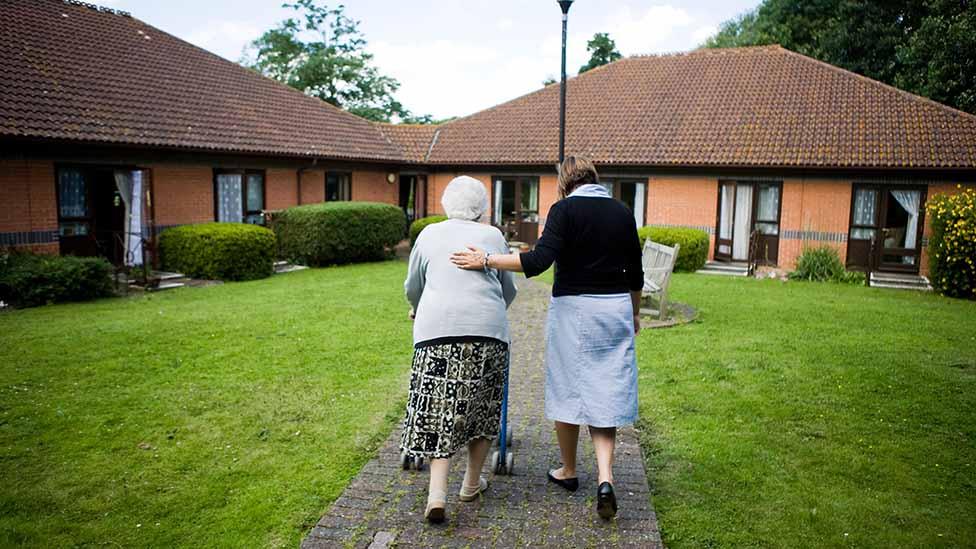
- Published11 June 2020
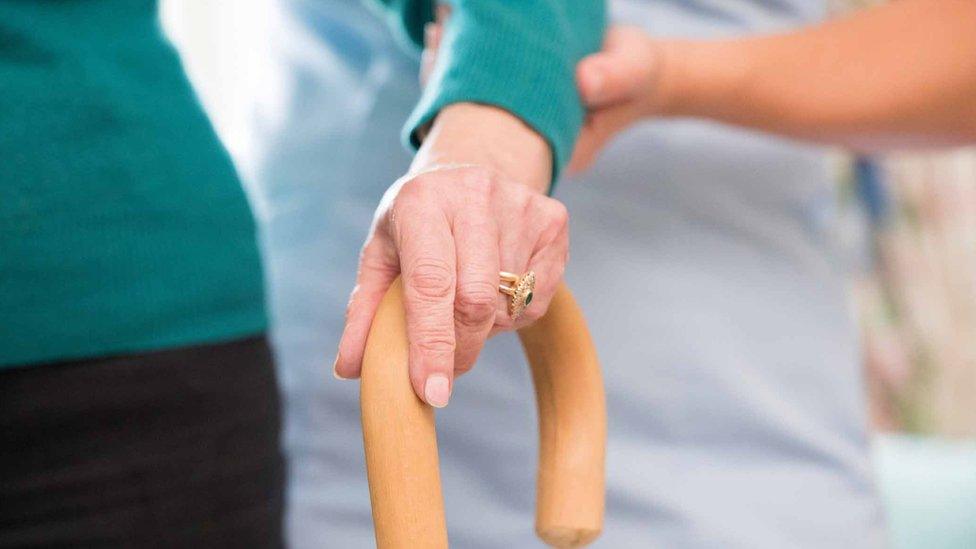
- Published31 May 2020
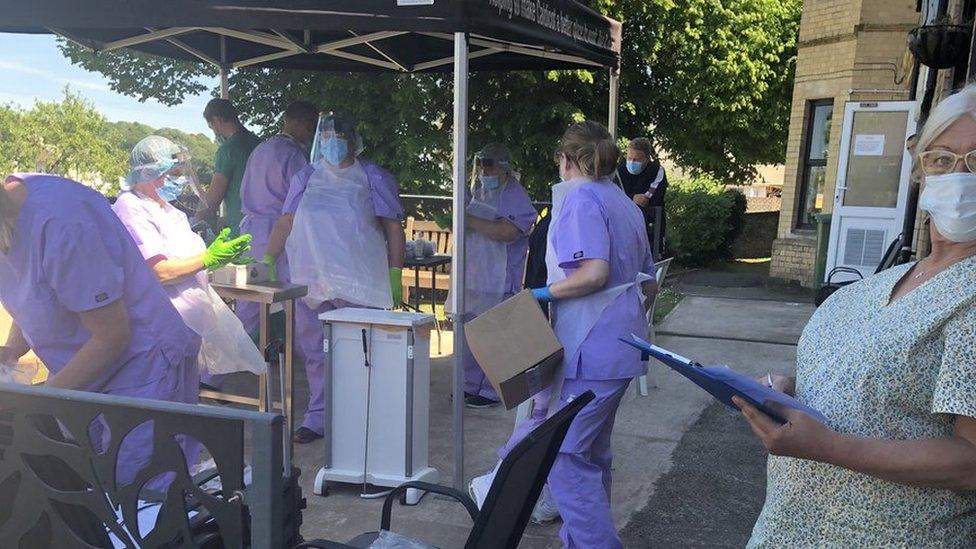
- Published15 May 2020
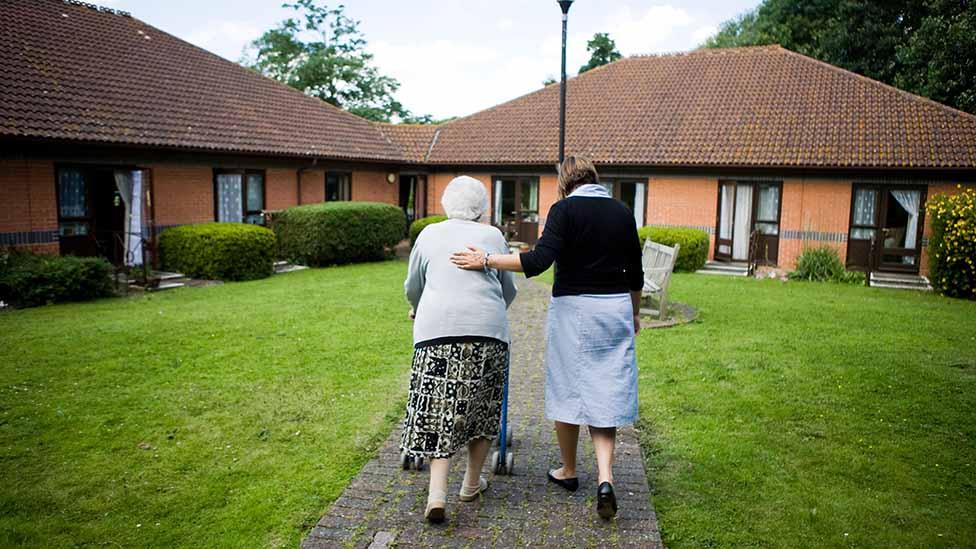
- Published23 May 2020
